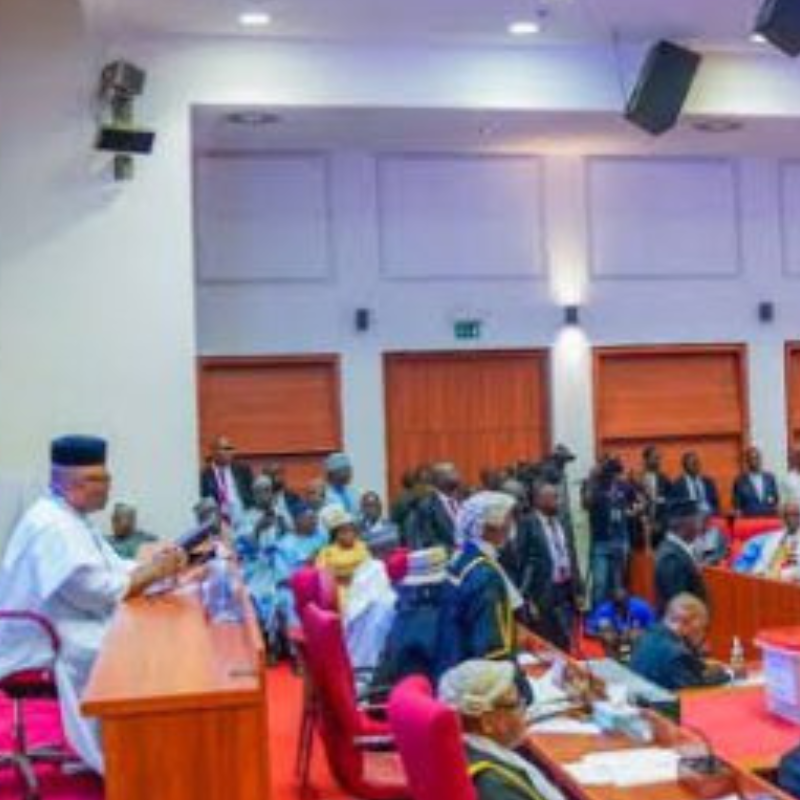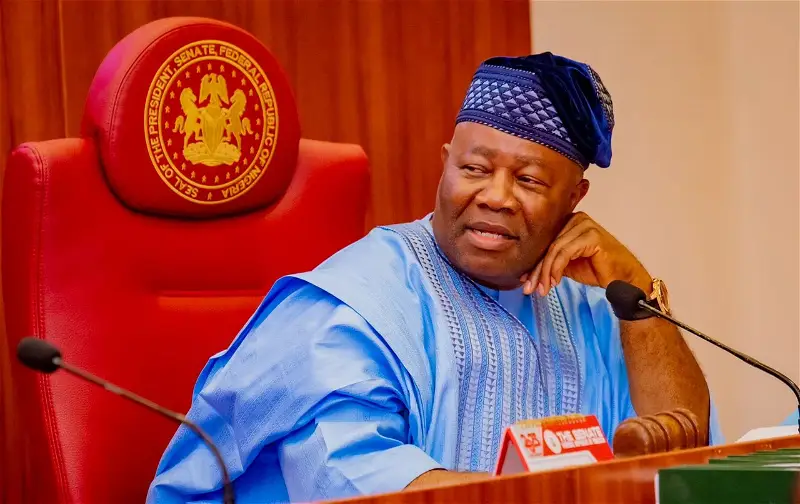Since its inauguration in June 2023, Nigeria’s 10th senate has found itself navigating one of the most complex and politically charged terrains in the country’s economic landscape: the extractive sector.

Long a cornerstone of national revenue and political patronage, the extractive sector has once again emerged as a flashpoint, this time amid economic recalibration, subsidy removal and refinery rehabilitation.
The senate has found itself squarely in the middle of Nigeria’s energy transition crossroads.
This article audits the legislative footprint of the 10th senate in the extractive sector over the past twenty-two months, tracking motions, investigations, and resolutions to understand where lawmakers are focusing their energy and what that says about Nigeria’s broader energy transition and governance reform. But first, here are a few things to note about Nigeria’s extractive sector.
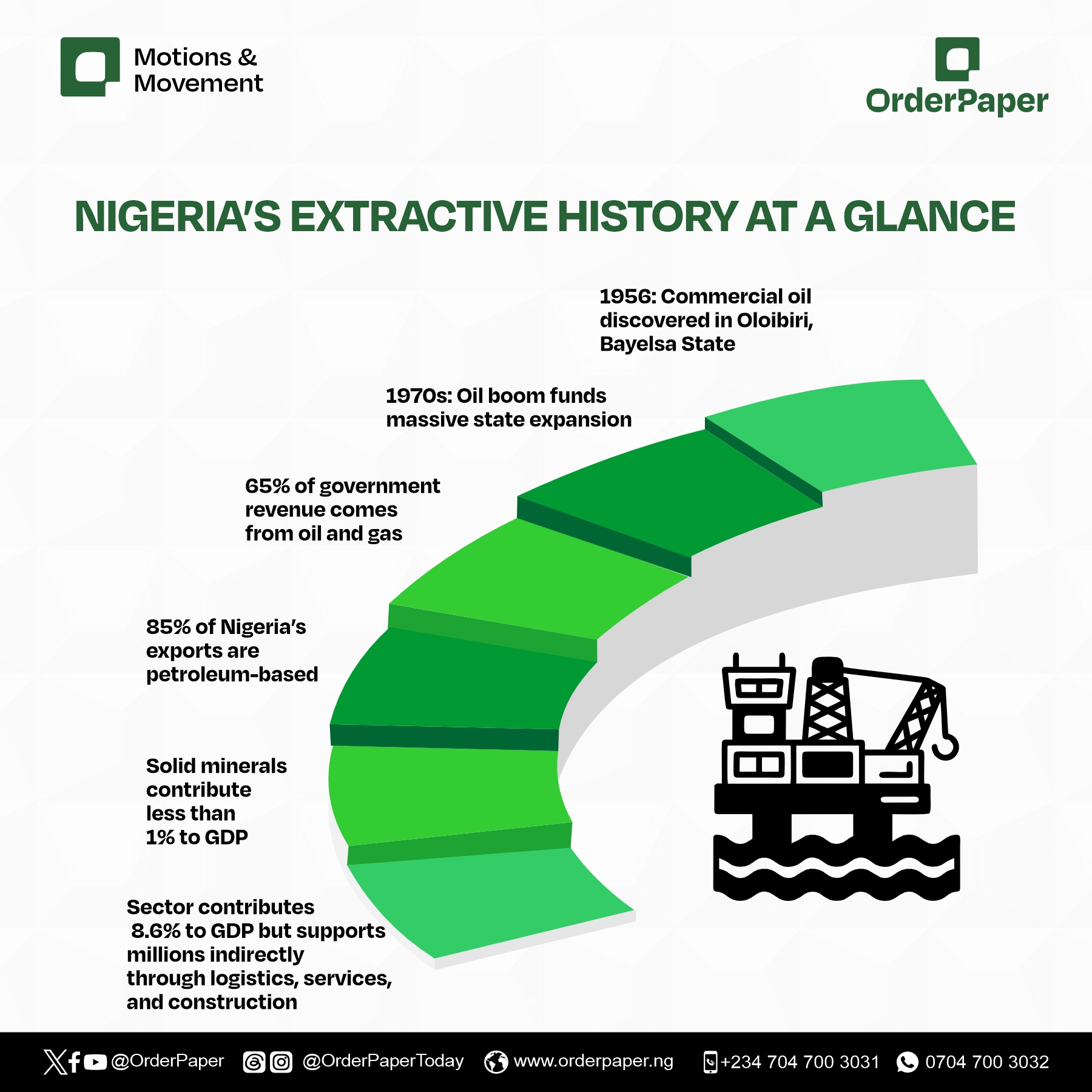
A brief historical overview
Nigeria’s extractive sector comprising oil, gas, solid minerals, and associated industries has shaped the country’s political economy since the discovery of commercial oil in Oloibiri (present-day Bayelsa State) in 1956. Since then, oil and gas have dominated national revenue, exports, and foreign exchange earnings, effectively becoming the backbone of the economy.
From the 1970s oil boom to the Structural Adjustment Programme (SAP) era of the 1980s, to the recent push for energy transition and local refining, the extractive sector has remained at the centre of Nigeria’s development discourse, political struggles, and economic vulnerabilities.
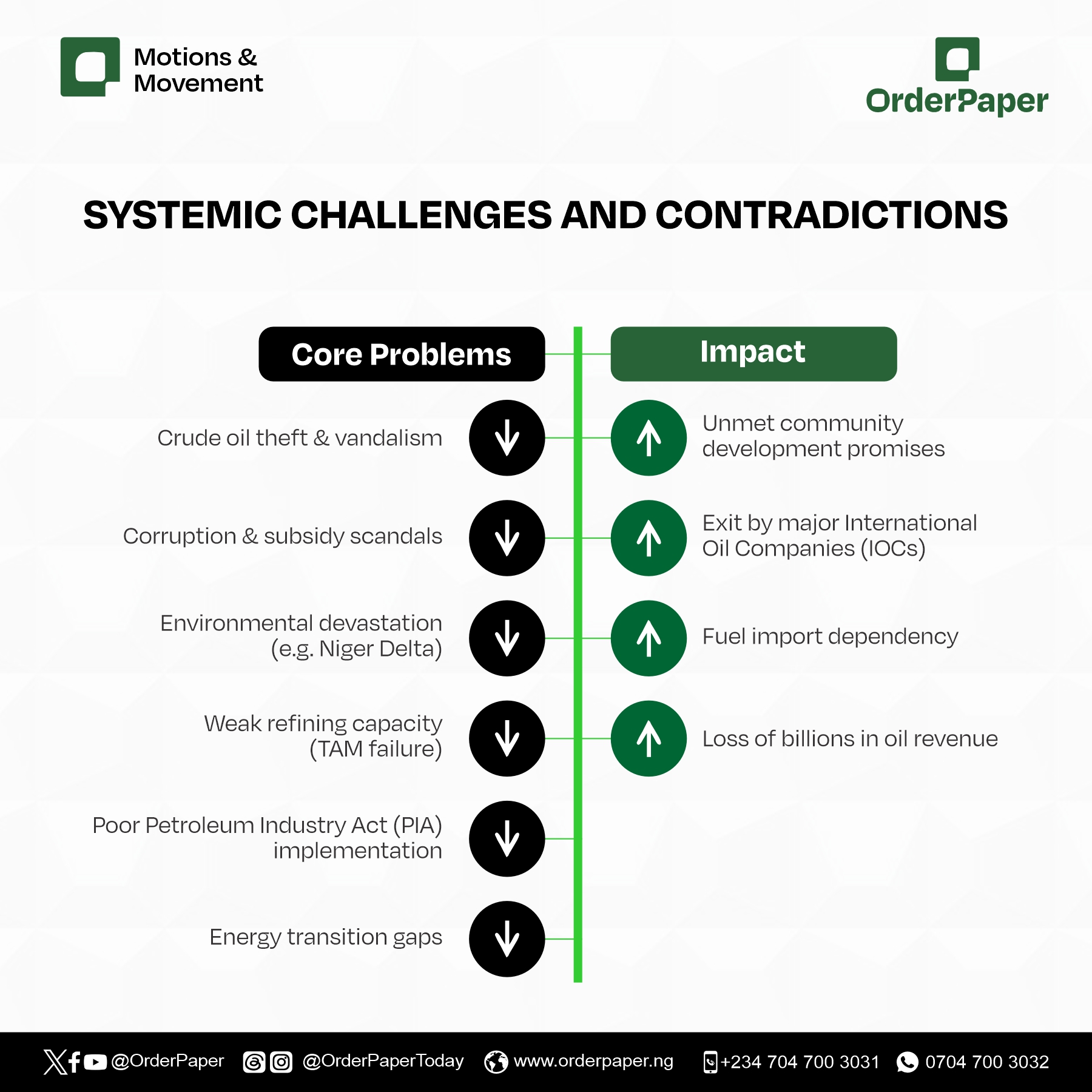
Economic benefits: More than just oil
According to the Extractive Industries Transparency Initiative (EITI), the oil and gas sector accounts for approximately 65 percent of government revenue and over 85 percent of total exports. Nigeria also has a largely underdeveloped mining sector, which makes up less than one percent of the country’s GDP. Proceeds from petroleum exports have funded national budgets, infrastructure, and public sector salaries.
Though the oil and gas industry is not labour-intensive, it supports millions of jobs indirectly through the services, construction, and logistics sectors. In the solid minerals space, artisanal and small-scale mining employs hundreds of thousands across states like Zamfara, Kogi, and Osun.
Interestingly, the sector has attracted billions in Foreign direct investment (FDI) over the decades, especially from multinational oil companies like Shell, ExxonMobil, Chevron, and Total. Even in periods of instability, Nigeria has remained a significant player in the global oil market.
Notably, the introduction of the 13 percent derivation fund and the establishment of bodies like the Niger Delta Development Commission (NDDC) and state oil commissions have tied extractive wealth to regional development albeit unevenly.
As a founding member of Organisation of the Petroleum Exporting Countries (OPEC) and the largest oil producer in sub-Saharan Africa (until recent years), Nigeria’s extractive power has influenced its foreign policy, regional standing, and energy diplomacy.
Systemic challenges and contradictions
Despite its enormous potential, Nigeria’s extractive sector has been weighed down by a mix of policy failures, corruption, environmental degradation, and poor institutional oversight. Key challenges include:
- Crude oil theft and pipeline vandalism
Nigeria loses hundreds of thousands of barrels daily to organised oil theft, often with alleged complicity from security forces, local cartels, and industry insiders. This not only depletes national income but also erodes investor confidence.
- Corruption and opacity
The sector is notoriously opaque. From subsidy scandals to questionable crude swap deals, the lack of transparency in production volumes, cost recovery, and remittance to the federation account has created deep mistrust. Institutions like the Nigeria Extractive Industries Transparency Initiative (NEITI) have advocated reforms but adoption remains challenged.
- Environmental devastation
Oil-producing communities, particularly in the Niger Delta, suffer from devastating spills, gas flaring, and land degradation. The Ogoni cleanup, launched after the UNEP report, has been slow. Host community tensions have translated into militancy, sabotage, and kidnappings.
- Weak refining capacity
Despite producing crude, Nigeria imports almost all its refined petroleum due to the failure of public refineries and the slow rollout of modular refineries. Billions spent on turnaround maintenance (TAM) have yielded little, with full reliance on fuel imports for decades.
- Implementation gaps in reform laws
The long-awaited Petroleum Industry Act (PIA), passed in 2021, was meant to overhaul the sector introducing new fiscal frameworks, community development trusts, and a commercialised NNPC Limited. However, implementation has lagged. Key agencies remain underfunded, International Oil Company (IOC) divestments have created new legal concerns, and communities feel excluded from benefits.
- Insecurity and investor flight
Frequent attacks on oil infrastructure, policy inconsistency, and underinvestment in security have led many IOCs to exit or scale down operations. New investments are shifting to countries with better governance and stability.
- Energy transition and global pressure
As the world moves away from fossil fuels, Nigeria faces pressure to diversify its economy and embrace cleaner energy. However, the country lacks a coherent national energy transition framework, and gas remains a transition fuel in name only.
Some of these issues have underscored why current tax reform bills before the national assembly are crucial. These reforms aim to reduce Nigeria’s heavy dependence on oil money, make tax collection more efficient, and ensure better use of public funds. In simple terms, the tax reforms could help fix some of the problems in how Nigeria manages its oil wealth.
READ ALSO: 11 motions in 21 months: Senate inaction as 2025 flooding looms
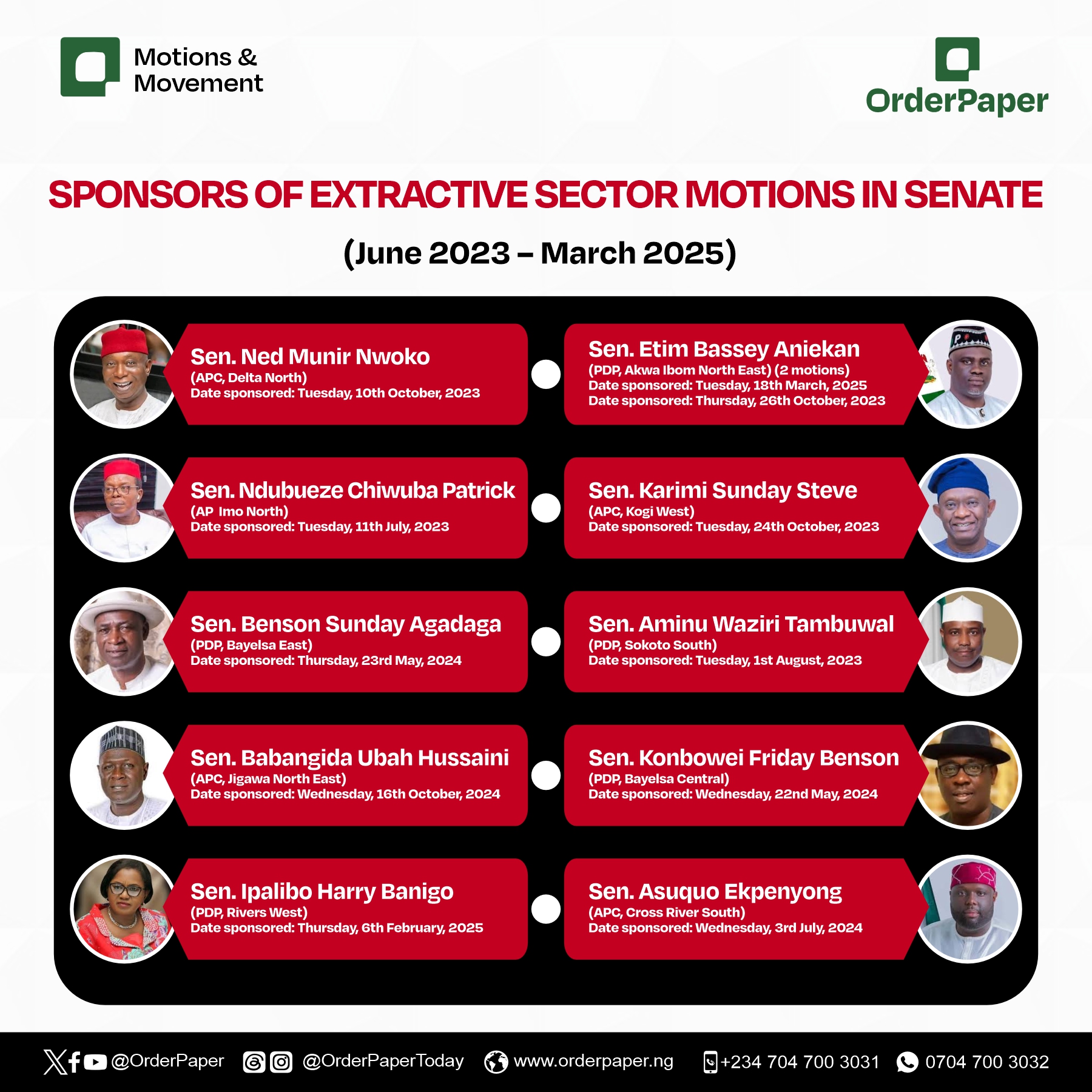
Mapping the 10th senate motions – What has been tabled?
From June 2023 to March 2025, the 10th senate has, within its first 22 months, debated no fewer than eleven motions directly linked to Nigeria’s extractive sector. These cover a wide range of themes: from crude oil theft and fuel subsidy spending to refinery turnaround maintenance (TAM), environmental pollution, and the potential fallout of IOC divestments.
A survey of these motions reveals three broad areas of legislative focus:
- Governance and accountability
- National security
- Environmental and community impact
Below is a table of key motions, their sponsors, dates, and core resolutions:
| # | Motion | Sponsor | Date | Core Resolution(s) |
| 1 | Need to Investigate the Controversial Huge Expenditure on Premium Motor Spirit (PMS) under the Subsidy/Under Recovery Regime by the Nigerian National Petroleum Company Limited (NNPCL) | Sen. Ndubueze Patrick | 11 July 2023 | Review NNPCL spending, propose consortium-led refinery projects |
| 2 | Urgent Need to Lift the Restriction Order Placed on Supply of Fuel to Border Communities | Sen. Aminu Tambuwal | 1 Aug. 2023 | Lift restrictions post-subsidy removal; intensify anti-smuggling enforcement |
| 3 | Urgent Need to Investigate the Incessant and Nefarious Acts of Crude Oil Thefts in the Niger Delta and the Actors | Sen. Ned Nwoko | 10 Oct. 2023 | Multi-committee probe into theft and actors involved |
| 4 | Urgent Need to investigate the various Turn Around Maintenance (TAM) Projects of Nigerian Refineries in order to uncover waste and forestall further waste of scarce public resources | Sen. Karimi Steve | 24 Oct. 2023 | Investigate TAM contracts from 2010–2023; assess viability |
| 5 | Urgent Need for Enquiry into Implementation of the Petroleum Industry Act(PIA)2021 with Regards to Potential Exit of International Oil Companies (IOCS) from Nigeria | Sen. Etim Aniekan | 26 Oct. 2023 | Probe ExxonMobil’s exit, monitor PIA compliance |
| 6 | Urgent need to investigate continued importation of Hazardous petroleum products and dumping of substandard diesel into Nigeria | Sen. Asuquo Ekpenyong | 3 July 2024 | Ad-hoc probe into substandard fuel imports and distribution |
| 7 | Fuel tanker explosion in Majia, Taura Local Government Area in Jigawa North Senatorial District of Jigawa State | Sen. Babangida Hussaini | 16 Oct. 2024 | Relief measures, sensitisation, and national emergency response |
| 8 | Urgent Need for Transformation of the abandoned Shell Airstrip at Oloibiri Oil Well, Otuogidi in Ogbia Local Government Area of Bayelsa State to an Air Force Base | Sen. Benson Agadaga | 23 May 2024 | Call for military, NNPCL, NDDC revival of strategic infrastructure |
| 9 | Massive Explosion close to Gbarain-Ubie Gas Processing Facility in Yenagoa Local Government Area, Bayelsa State which led to pollution of the environment | Sen. Konbowei Friday | 22 May 2024 | Investigate impact, mandate integrity tests, environmental safeguards |
| 10 | Urgent need to mitigate the recent fire outbreak and oil spill from Manifold Well 8/Bug 008 in OML 18 Bukuma (Agum), Rivers West Senatorial District, Rivers State | Sen. Ipalibo Banigo | 6 Feb. 2025 | Urge NOSDRA investigation, health support for communities |
| 11 | Illegal annexation of Nigerian Mangroves Islands, waters and its crude oil by the Republic of Cameroon | Sen. Etim Aniekan | 18 Mar. 2025 | Ad-hoc committee to investigate and protect territories |
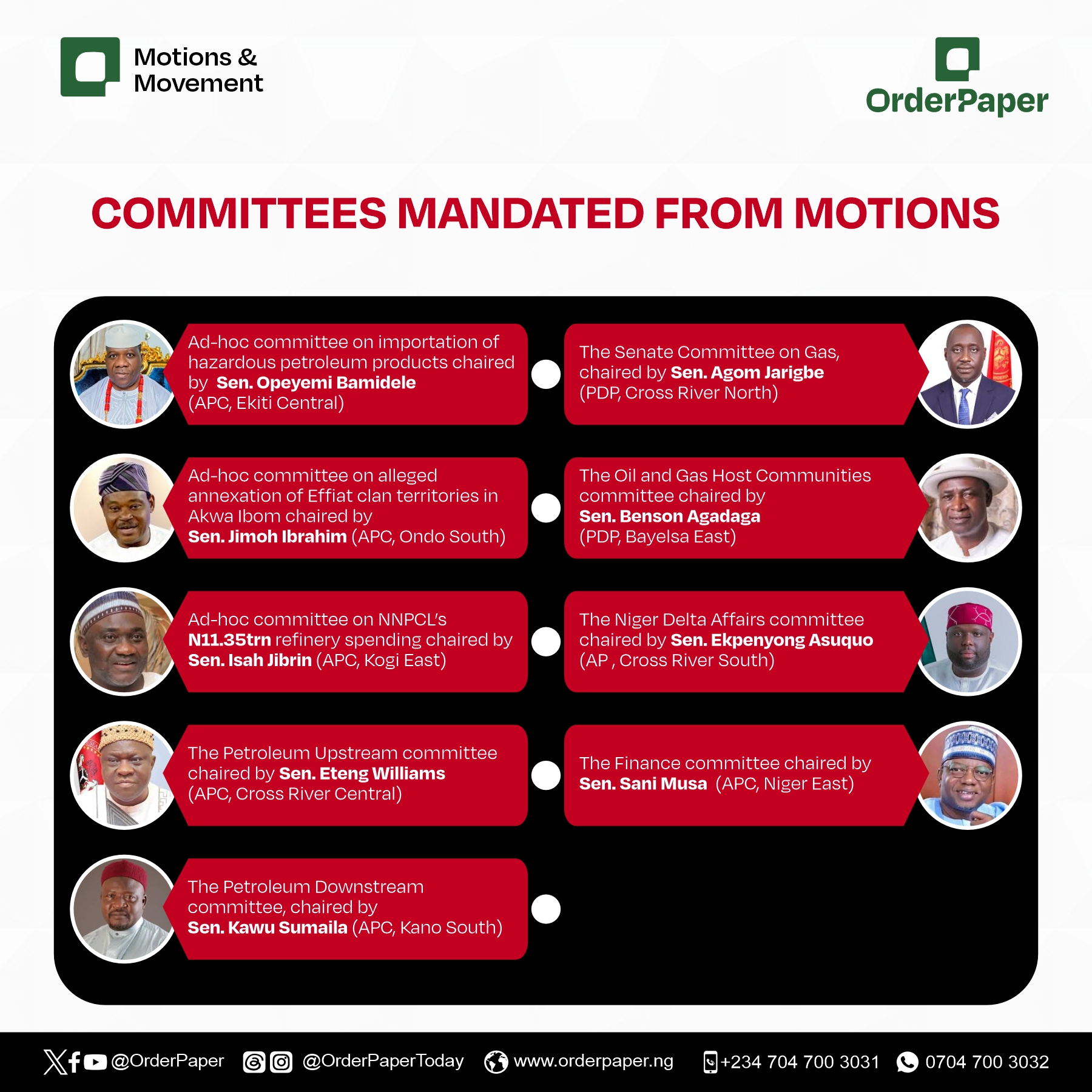
These issues were referred to various committees, including those on petroleum upstream and downstream, gas, finance, oil and gas host communities, and the Niger Delta Development Commission.
Additionally, several ad-hoc committees were constituted to address specific concerns, such as the one on the importation of hazardous petroleum products chaired by Sen. Opeyemi Bamidele (APC, Ekiti Central); the committee investigating the alleged annexation of Effiat clan territories in Akwa Ibom; and the committee probing NNPCL’s N11.35 trillion refinery expenditure. Yet, there appears to be no clear action in sight.
The 10th senate’s engagement with Nigeria’s extractive sector reflects a deepening awareness of the sector’s fragility and its outsized influence on the nation’s economic trajectory.
For instance, the motion by Sen. Ned Nwoko on crude oil theft digs into one of Nigeria’s most debilitating economic leakages. With oil theft reportedly costing the country billions in revenue, this motion speaks to the senate’s intent to force institutional accountability. The motion was referred to five relevant committees: Petroleum Upstream, Downstream, Gas, Host Communities, and Niger Delta Affairs, highlighting the cross-cutting nature of the issue and the need for collaborative legislative oversight.
In the same vein, Sen. Karimi Sunday’s inquiry into refinery Turnaround Maintenance (TAM) projects between 2010 and 2023 exposes a cycle of waste and underperformance, aligning with a broader public frustration over years of sunk costs with no output.
The motion tasked an ad-hoc committee to involve the Nigerian Midstream and Downstream Petroleum Regulatory Authority, Nigerian Upstream Petroleum Regulatory Commission (NUPRC), Nigerian National Petroleum Company Limited (NNPCL), and even the Nigeria Liquefied Natural Gas Limited (NLNG), indicating a move toward multi-stakeholder scrutiny of public spending and project outcomes.
Other motions directed MDAs like the NNPCL, National Oil Spill Detection and Response Agency (NOSDRA), National Emergency Management Agency in Nigeria (NEMA), and the Federal Ministry of Aviation to take specific actions, from investigating oil spills and fuel explosions to reviving abandoned infrastructure like the Oloibiri airstrip.
In the case of illegal fuel restrictions at border communities, the senate moved beyond the petroleum sector to engage Customs, the National Security Adviser (NSA), and security committees, signalling awareness of how extractive issues intersect with border policy and national security.
Sen. Patrick Ndubueze’s motion on NNPCL’s subsidy spending and the proposed consortium-led refinery projects underscores an attempt to confront long-standing opacity in fuel subsidy administration, one of Nigeria’s most costly and controversial policies.
Similarly, Sen. Aminu Tambuwal’s call to lift fuel restrictions in border areas reflects the economic and security balancing act following subsidy removal, hinting at the wider implications of national energy policy on border communities.
Sen. Etim Aniekan’s focus on the implementation of the Petroleum Industry Act (PIA) and the possible exit of ExxonMobil marks a shift in attention to how international players are reacting to Nigeria’s regulatory environment, essential in assessing investor confidence. Meanwhile, Sen. Asuquo Ekpenyong’s motion on hazardous fuel imports further illustrates growing concern about the quality and safety of petroleum products in circulation.
Environmental and safety issues also feature strongly: from explosions in Jigawa and Yenagoa to oil spills in Rivers State, the motions highlight an urgent need for not just reactive measures, but sustained environmental governance.
The motion on the illegal annexation of oil-rich mangroves by Cameroon, again sponsored by Sen. Aniekan, brings a geopolitical layer to the discussion, showing that resource governance now also involves questions of sovereignty and border security.
The motions show an institution trying to assert its relevance amid executive dominance and public scepticism.
Yet, despite these important motions, the ultimate question remains: have the relevant committees and ministries delivered on the senate’s resolutions?
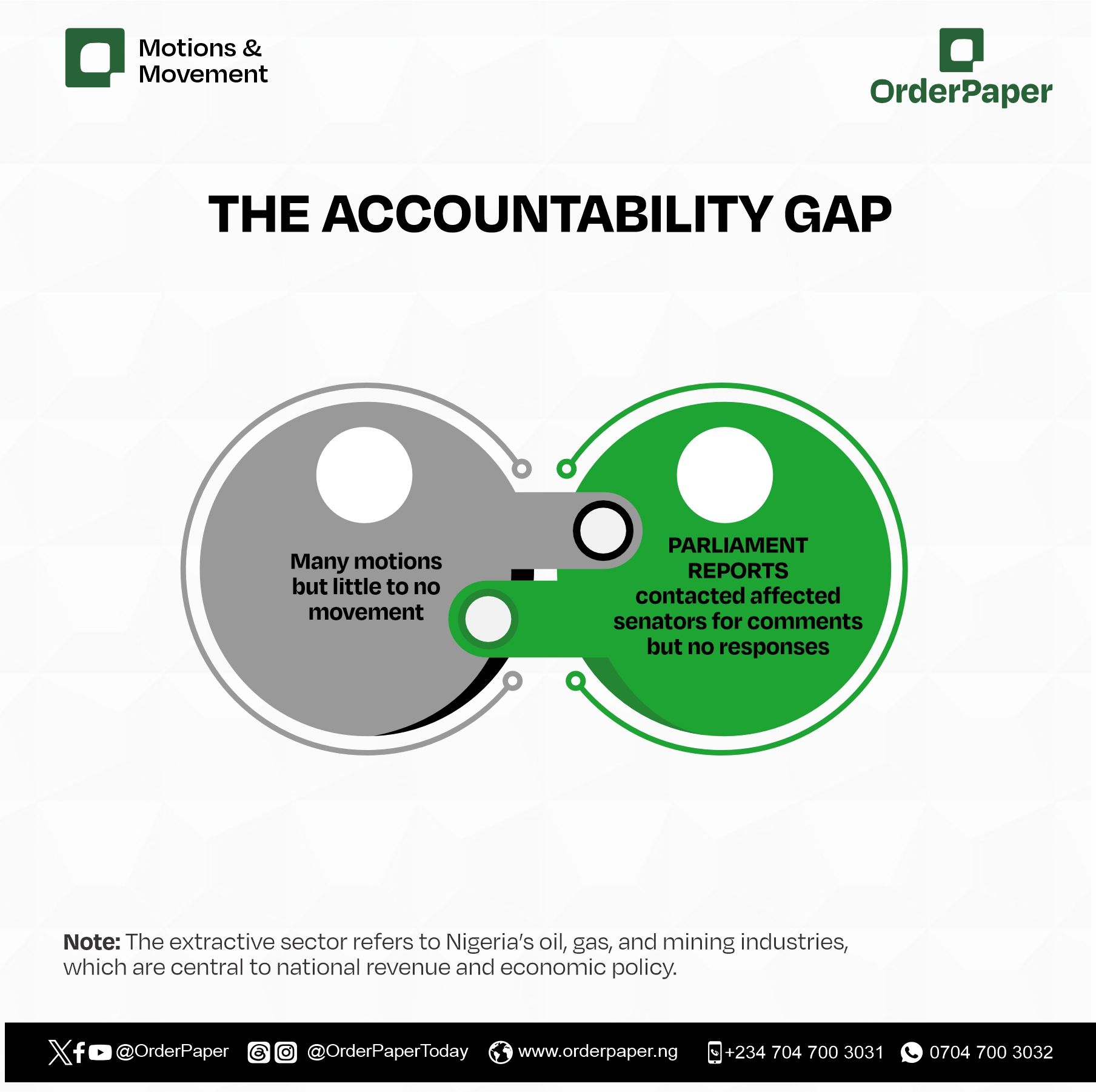
Parliament Reports made several attempt to reach the chairmen of each of these committees and the movers of the motions. However, as of the time of filing this report, no response was received.
Passing motions signals intent, but follow-up, especially through public hearings, reports, policy implementation, and enforcement is what truly determines legislative impact. Without that, the motions risk becoming symbolic gestures in the face of systemic inertia.
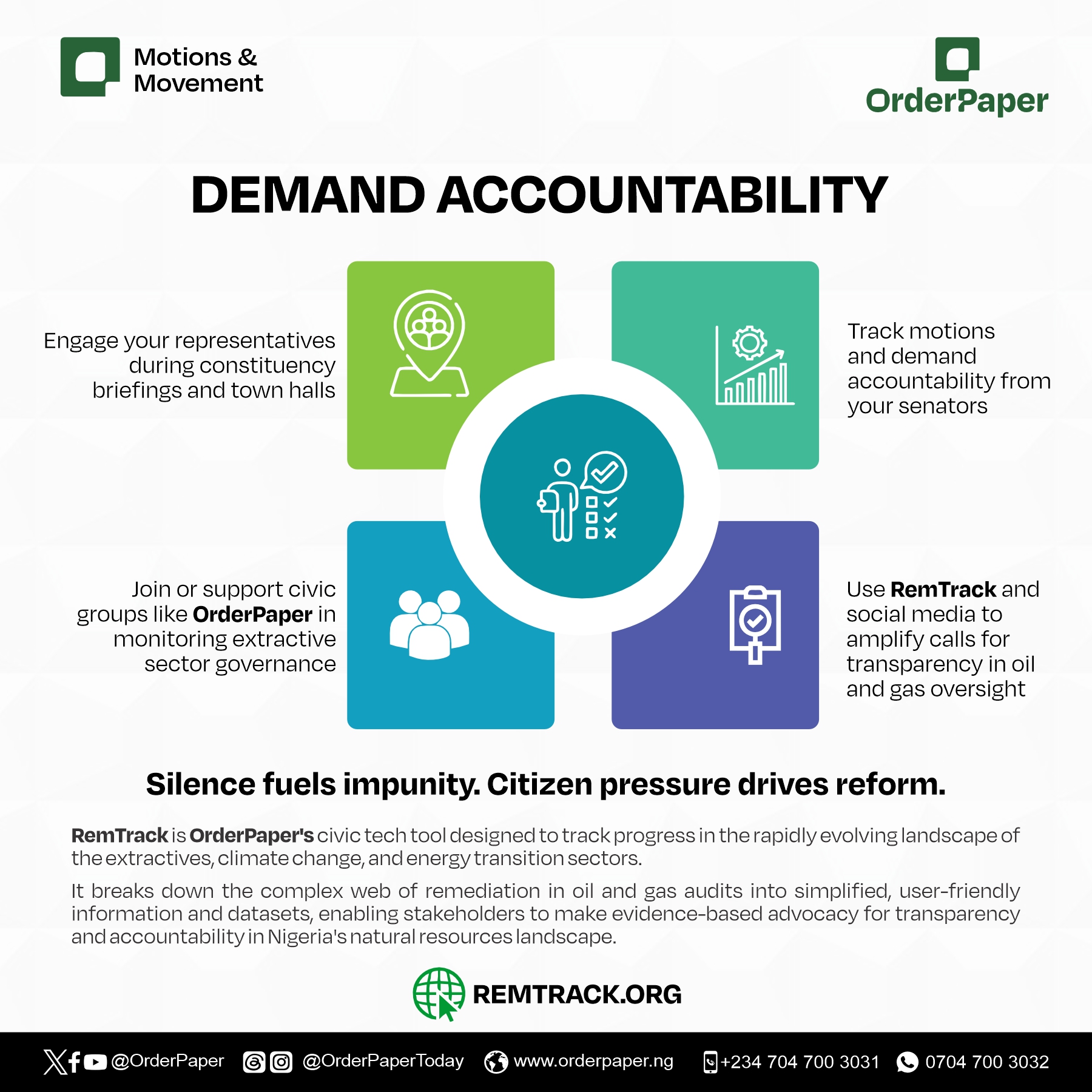
Motions & Movement is an initiative of OrderPaper that tracks motions raised by lawmakers during plenary and offers insights into the progress of resolutions by parliamentary committees.


